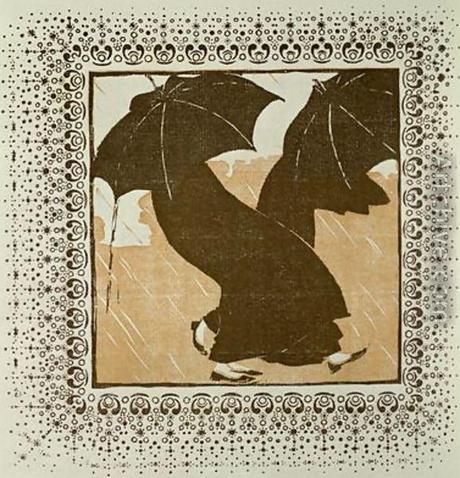
Koloman Moser, April, or Impudent Weather, 1903
Poetry tears through the footballing life like a whirlwind. Somebody resorts to it as a spiritual return to the peasant forced-labor system, and in this vision a soccer match reflects a technophobic view (suspiciously convenient, perhaps, for some creative Luddism) of the biochemical “progress” sought after by a Steve Jobs—all the heat maps, graphs, chalkboards and tricky tactical arrangements that prolong soccer life while also endowing it with an operatic aura of mesmeric persuasion. Others negotiate with the poetical aspects of football because they are genuinely bored by the diffuse talkiness, dragging, and flat conversationalism of sports media; this vision, whether moved by optimism or mocking desperation, ends up burnt by an idealistic young spirit and ebullient sensuality.
In his poem, simply titled “The Twenty-Three,” Igor Mladenovic, a classical music connoisseur and reader of The Catch-22 Review (where he is the author of a couple of comments), has found a new, evocative way to voice what he alternatively defines “a float,” “a harmonius dancing” or else a bundle of unfulfilled ambitions that make you leave the green lawn feeling “slow, hollow, forlorn.” In Mladenovic’s hands, the ‘football poem’ is a formula of unique verbal music, eavesdropping on the pitch conversations and translating their casual moves into musical notation. What is remarkable in “The Twenty-Three,” at least to my ears, is the undulating way the pitch is clear, the rules are clear, but the players are still trembling with fear: the images here are suspended, caught in between action and ritual, or moon and roaring crowds. And how beautiful would it be to be able to complete this score, and follow a ‘false-nine’ (a plus in people’s technical jottings) into his metrical complexity, a word-rhythm of pentuplets and septuplets.

Elliott captures issues of change in terms of their aura. If the magnificent rise of the myth of La Masia academy was like hearing offstage brass fanfares, would its destiny end up (as already typified by another splendid French generation of football actors) like a trombone-menace of callow soccer realists?
One of the Dispatches from a Football Sofa, titled “Don’t Believe the Hype,” dissects with verve and conviction the ideology of opinion leaders and the “Sky Sports juggernaut.” Who decides that the latest knockout was the biggest night in soccer ever? Who distinguishes in the chorus of Barcelona publicists and anti-publicists the tactical deniers, the middlebrow columnists, and the “bandwagon jumpers”? And is Fernando Torres’ late goal a form of re-payment or rather “the final embers of a talent in terminal decline”? Reading this witty dispatch, one has the impression that historical messages are never transparent and that football, in musical terms, possesses an immense range of vocal expression; that is to say, Barcelona’s decline is an orchestral theme that can still shift dramatically from soaring requiem to solemn paean to human mortality. ♦

